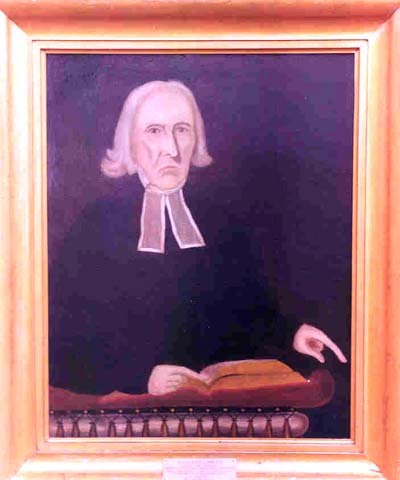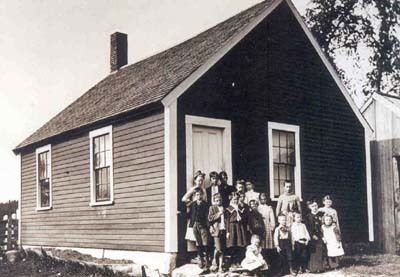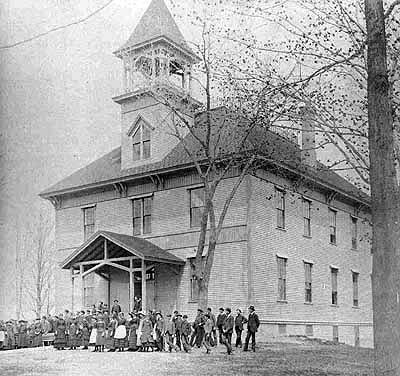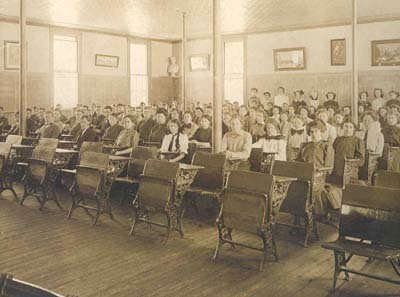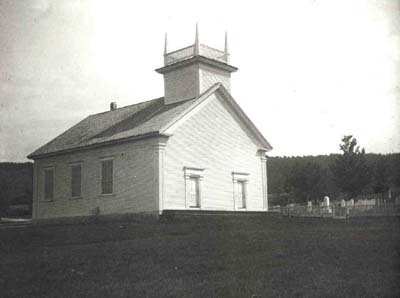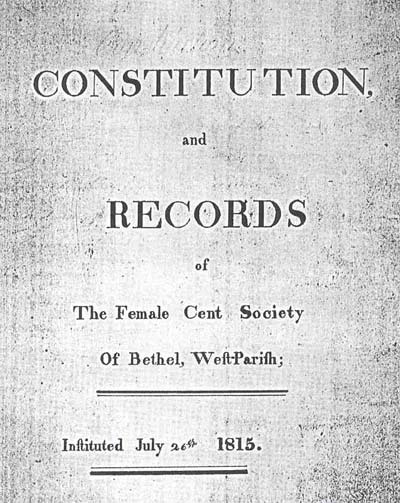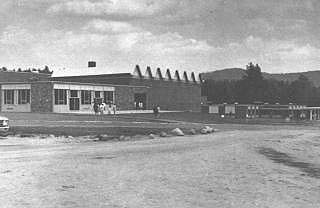Mind and Spirit
A graduate of Harvard, and perhaps the most learned man of Bethel in his day, the Reverend Daniel Gould was "of a rather worldly disposition, bringing the first chaise to Bethel, and wearing cocked hat, silk gown, and knee breeches around the town." The community's first-settled minister, Gould established a private school in his home that was the first secondary education offered in Bethel. The local Academy was named in his honor in 1843, a year after his death.
Modest, one-room district schoolhouses were at one time valuable centers of learning throughout small New England towns like Bethel. These forerunners of today's modern educational facilities provided a solid education under often less-than-ideal conditions. No longer standing, this school once occupied a spot next to the Flat Road Cemetery (just visible on the left) near the town's western border.
Students and teachers gather in front of the second Gould Academy building about 1890. Three such structures have occupied this same Church Street lot, including today's Hanscom Hall, a striking Colonial Revival edifice that opened in 1934.
This late nineteenth century image provides a glimpse of the interior of Gould Academy's 1881 building (also shown above). Spacious and well lighted, the school's classrooms (and attic gymnasium) nevertheless contained wooden support columns that students and faculty found bothersome as the years passed.
Bethel's oldest surviving religious structure, the Middle Intervale Meetinghouse was begun in 1816 and extensively remodeled in 1857. Once the site of early Bethel town meetings, as well as Methodist and Baptist church services, the building has witnessed numerous historic gatherings during its long existence.
One of the most important elements of town life in early Bethel was the church, and before 1820 Congregationalism remained the dominant religion, despite inroads made by the local Baptists and Methodists. The "Female Cent Society" of the West Parish Congregational Church, organized in 1815, raised funds "to assist in the distribution of the Scriptures" and "in supporting missionaries among the destitute." Like other early nineteenth century women's groups in northern New England, this local gathering also provided an important platform for the exchange of ideas and concerns of particular interest to Bethel's female population.

